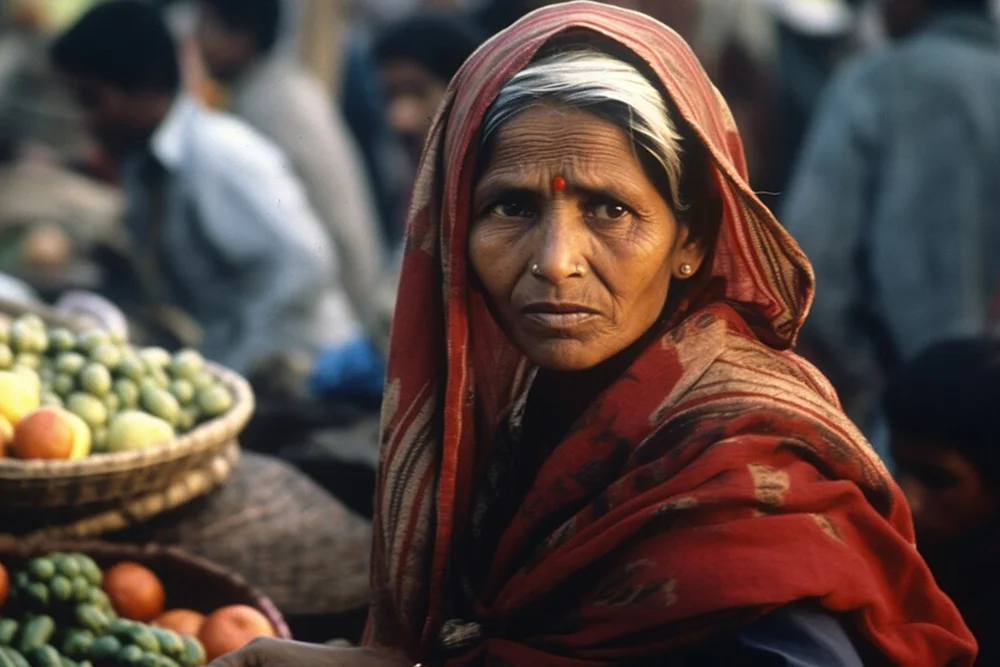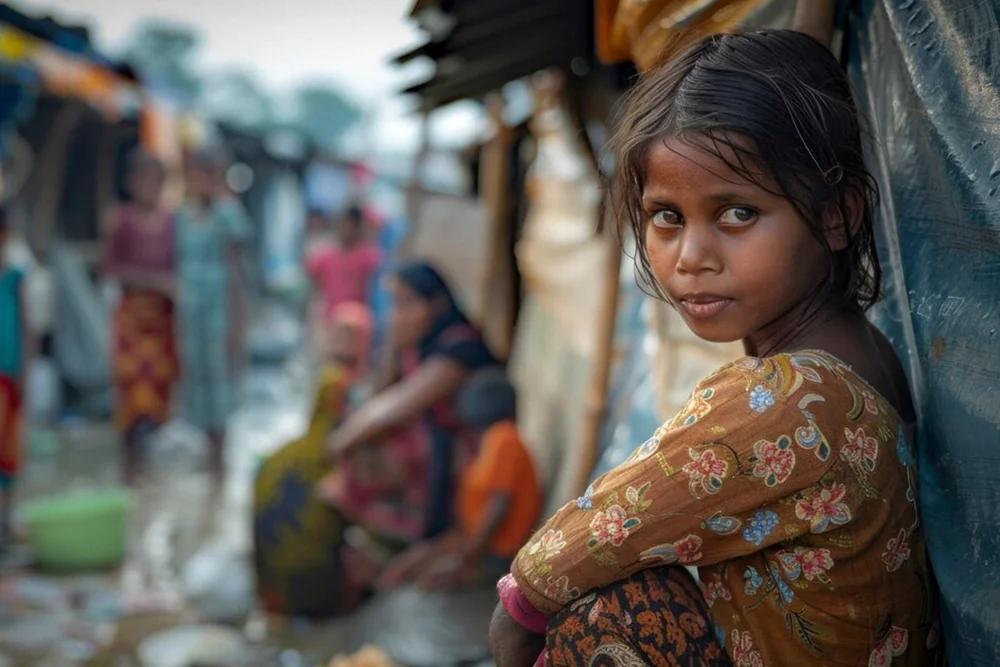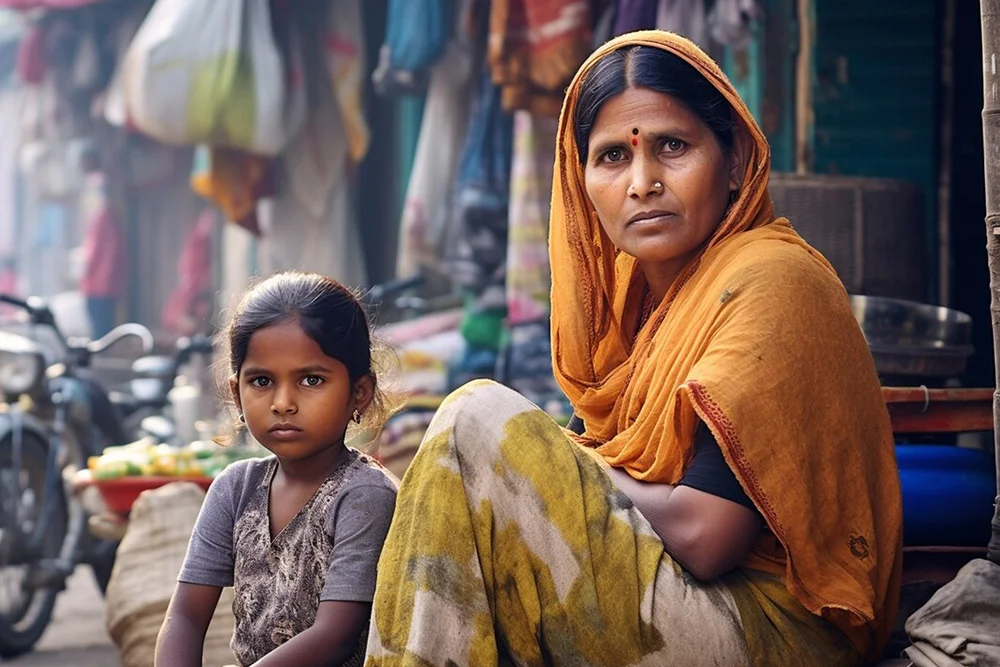National Civil Society (NCS) approaches disaster management as a structured, community-centered process; one that begins well before a crisis and continues long after the immediate emergency has passed. With a focus on preparedness, timely response, and sustained recovery, NCS ensures that vulnerable families are not left to navigate disasters alone.
The Three-Phase Model – Pre-Disaster, During Disaster, and Post-Disaster; guides every intervention. In the pre-disaster phase, NCS conducts awareness campaigns, mock drills, and local training programs in partnership with schools, self-help groups, and civic bodies. Citizens are trained in basic first aid, safe evacuation, and risk identification, turning knowledge into protection.

During active disaster events such as floods, landslides, or cyclones, NCS mobilizes trained volunteers to distribute relief kits, assist with evacuations, and coordinate with local authorities. The response includes not just materials but also emotional support and information-sharing to reduce panic and confusion.
In the post-disaster phase, NCS helps families rebuild; offering assistance with documentation, insurance claims, government aid applications, and household restoration. This includes repairing damaged homes, clearing debris, and conducting hygiene drives to prevent disease outbreaks.
NCS is officially recognized by the National Disaster Response Force (NDRF) and supported by the Ministry of Home Affairs (MHA) for its effective grassroots role in disaster resilience. Programs are backed by its Insurance for All Initiative, which ensures financial recovery is part of the response.
With each disaster response, NCS strengthens community readiness, public coordination, and policy linkage. It does not wait for disasters to happen; it builds systems that reduce their impact. For families with limited resources, this support often means the difference between disruption and recovery.
Disaster management is not a single act but a cycle that requires attention before, during, and after a crisis. NCS has adopted a structured three-phase model that focuses on pre-disaster prevention, real-time response, and post-disaster recovery to ensure continuous support for affected communities.
In the pre-disaster phase, NCS prioritizes awareness, planning, and preparedness. Through community training, school-level education, and partnership with local bodies, the organization spreads vital information about natural hazards such as floods, cyclones, earthquakes, and landslides. Households learn how to prepare emergency kits, plan evacuation routes, and identify safe shelters. Awareness materials are distributed in regional languages to make safety accessible to all.


During the active disaster phase, NCS activates a rapid response framework. Volunteers and field coordinators are mobilized to distribute relief materials, assist rescue teams, and offer psychological support to affected families. NCS also works closely with district administrations to streamline aid delivery, assess local needs, and manage temporary shelters. In this critical window, coordination and speed are essential; and NCS’s structured network allows for quick mobilization.
The post-disaster phase focuses on recovery, rehabilitation, and rebuilding. NCS helps families restore their homes, obtain government compensation, and apply for insurance claims. It provides technical guidance on sanitation, waste clearance, and structural repairs. Community meetings are held to review lessons learned, helping build future resilience.
This three-phase approach ensures that disaster response is not just about emergency relief but also about risk reduction, preparedness, and long-term recovery. It brings structure to chaos and helps communities regain stability with dignity, knowledge, and oCSOing support.
Disasters do not just destroy homes and infrastructure; they destroy financial security. For many families, especially in India’s middle class, a single crisis can wipe out years of savings and cause long-term economic instability. Recognizing this, NCS developed the Insurance for All Initiative, which aims to provide affordable, accessible, and essential insurance coverage for every member household.
This initiative includes House Insurance, Accidental Insurance, and Critical Illness Coverage, each carefully structured to address different risks. House insurance offers up to ₹10 lakh coverage for natural disasters such as floods, earthquakes, and cyclones. An additional ₹10 lakh is included for damages due to riots or terrorism, ensuring full-spectrum protection.

Under Accidental Insurance, members are entitled to ₹4 lakh coverage for accident-related medical expenses, along with a one-time death reimbursement of ₹50,000 to support dependent children’s education in case of a member’s accidental death.
Critical Illness Insurance covers up to ₹3 lakh for treatment of 15 high-cost conditions including cancer, heart attack, kidney failure, stroke, and major organ transplants. This coverage allows families to afford timely care without falling into debt.
What makes this initiative different is its focus on preventive protection, not post-disaster charity. Members are enrolled with ease, and claims are processed with transparency. The program is backed by trusted partners like SBI General Insurance and Apray Insurance, ensuring credibility and smooth coordination.
Through this initiative, NCS provides a dignified safety net, allowing families to face uncertainties with strength and security. It transforms the way disaster risk is managed; not by avoiding it, but by being financially prepared for it.

Partnerships play a vital role in scaling disaster response from isolated efforts to coordinated impact. National Civil Society (NCS) has established meaningful collaborations with two key public institutions; National Disaster Response Force (NDRF) and the Jammu & Kashmir State Road Transport Corporation (JKSRTC); to enhance disaster awareness, preparedness, and resilience.
The collaboration with NDRF, one of India’s leading disaster response agencies, has strengthened NCS’s training and community outreach programs. NDRF formally acknowledged NCS’s ability to mobilize local bodies and volunteers, especially in rural and semi-urban areas. With NDRF’s technical support, NCS facilitates school safety programs, mock drills, and community preparedness campaigns that train people in evacuation, first aid, and emergency communication. These trainings are delivered in regional languages to ensure clarity and inclusivity.
On a regional level, the partnership with JKSRTC has enabled NCS to conduct awareness drives and insurance literacy programs across disaster-prone districts in Jammu & Kashmir. JKSRTC provides logistical and operational support to NCS teams, helping reach difficult terrains during both training and emergency relief work. These collaborations have ensured not just reach but local credibility, enabling smoother coordination with village leaders, block officers, and district collectors.
By working with both national and state institutions, NCS has created a bridge between policy-level planning and grassroots implementation. The partnerships reflect a shared vision: disaster resilience cannot be delivered from the top down; it must be built together, with people, policies, and institutions working in sync.
These collaborations have allowed NCS to become more than just a service provider; it has become a trusted disaster resilience partner, actively contributing to India’s national safety framework.
